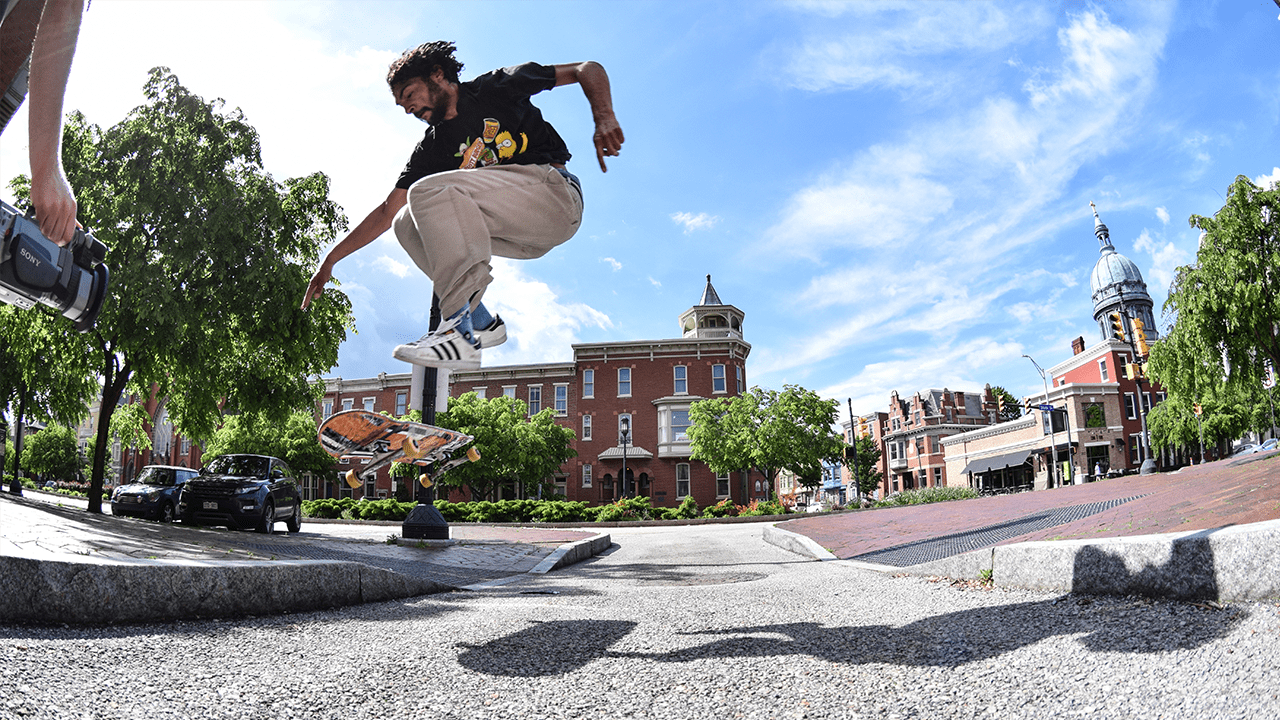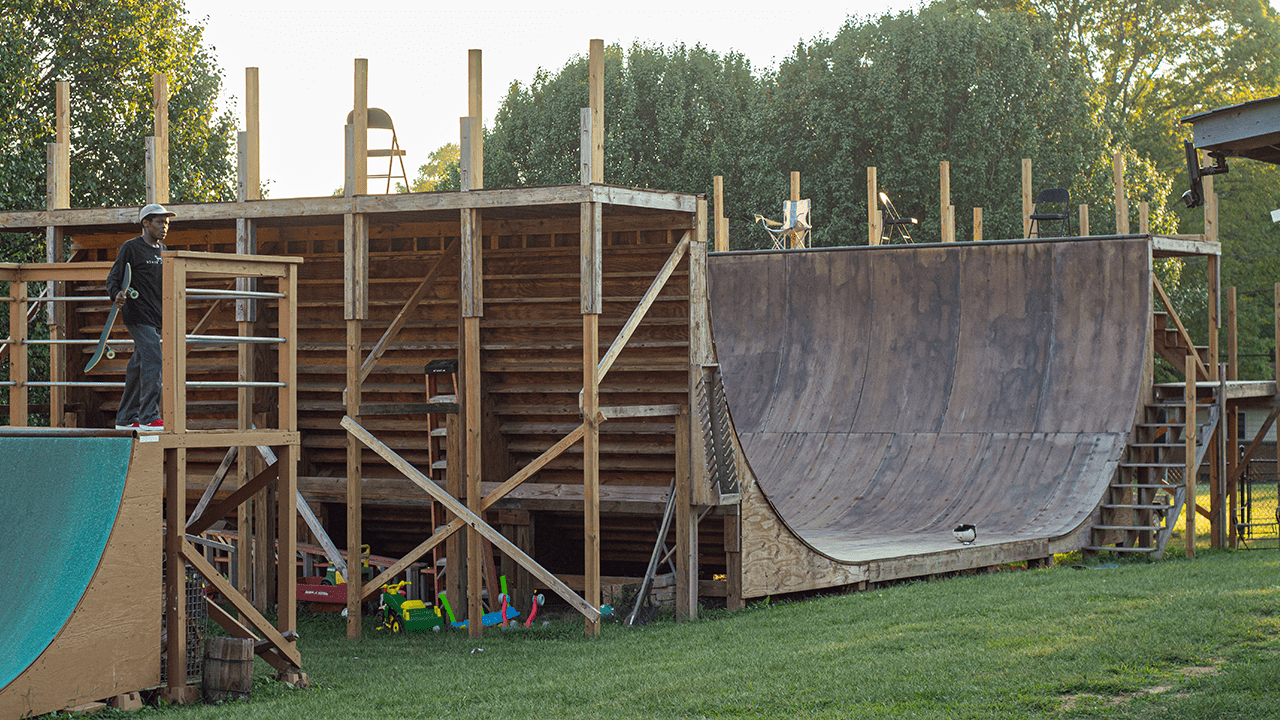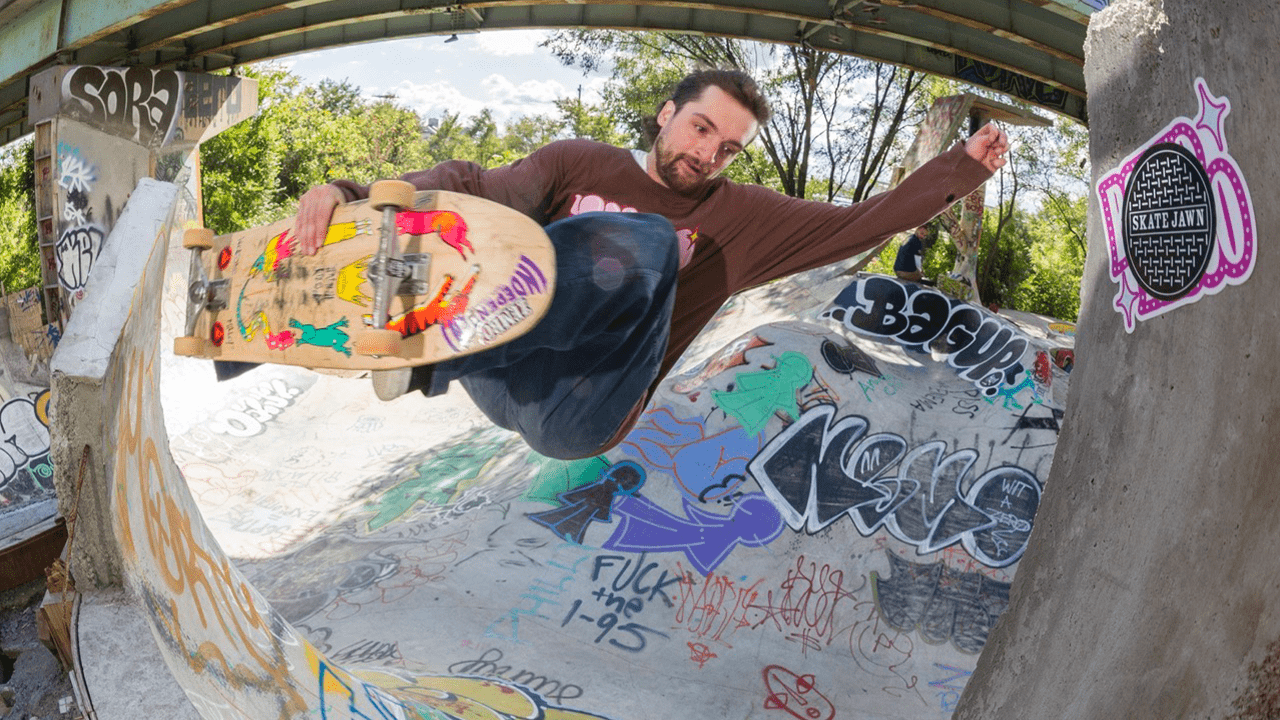Interview by Zach Moeller.
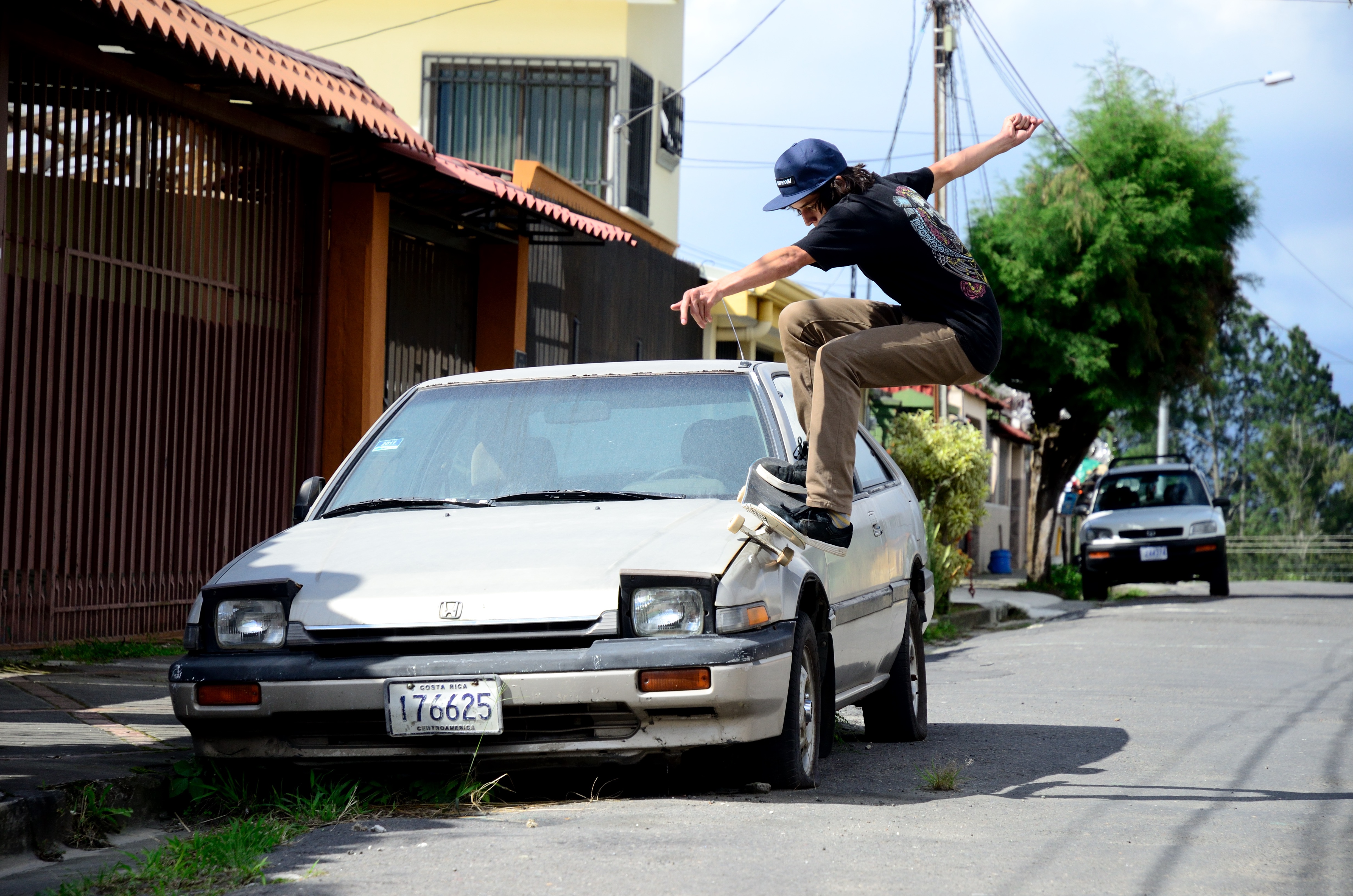
How long have you been shooting photos?
I’ve been taking photographs since 1998 when I began to study advertising in college. There I received an introductory course to photography, but I think that from a very young age I had a fondness for it. I took my first photos when I was 12 and in the last year of elementary school. Then at 13 I began to discover skateboarding and put photography aside for a while.
Tell me about the moment you fell in love with skateboarding.
I fell in love with skateboarding in 1985, when some skaters from that time went to the park near where I lived and were doing all sorts of tricks that I didn’t understand and that seemed too radical. They lived nearby and used to put two launch ramps outside of their house in front of each other forming a mini ramp. That’s when I said to myself, “this is my thing.”

Do you remember the first skate photo you shot?
The first skate photograph I took was in 1996, in that park in my community. It was my friend Daniel “Junior” Salazar doing a big ollie down a gap from the top of a kiosk and over the sidewalk into the street. I took it on one of those plastic cameras my parents used for family outings.
What cameras are you using now?
I’m currently using a Nikon D7000 for digital photography. I also take analog pictures, I use a Mamiya 500 DTL 35mm and a Mamiya C3 120mm in a medium format.
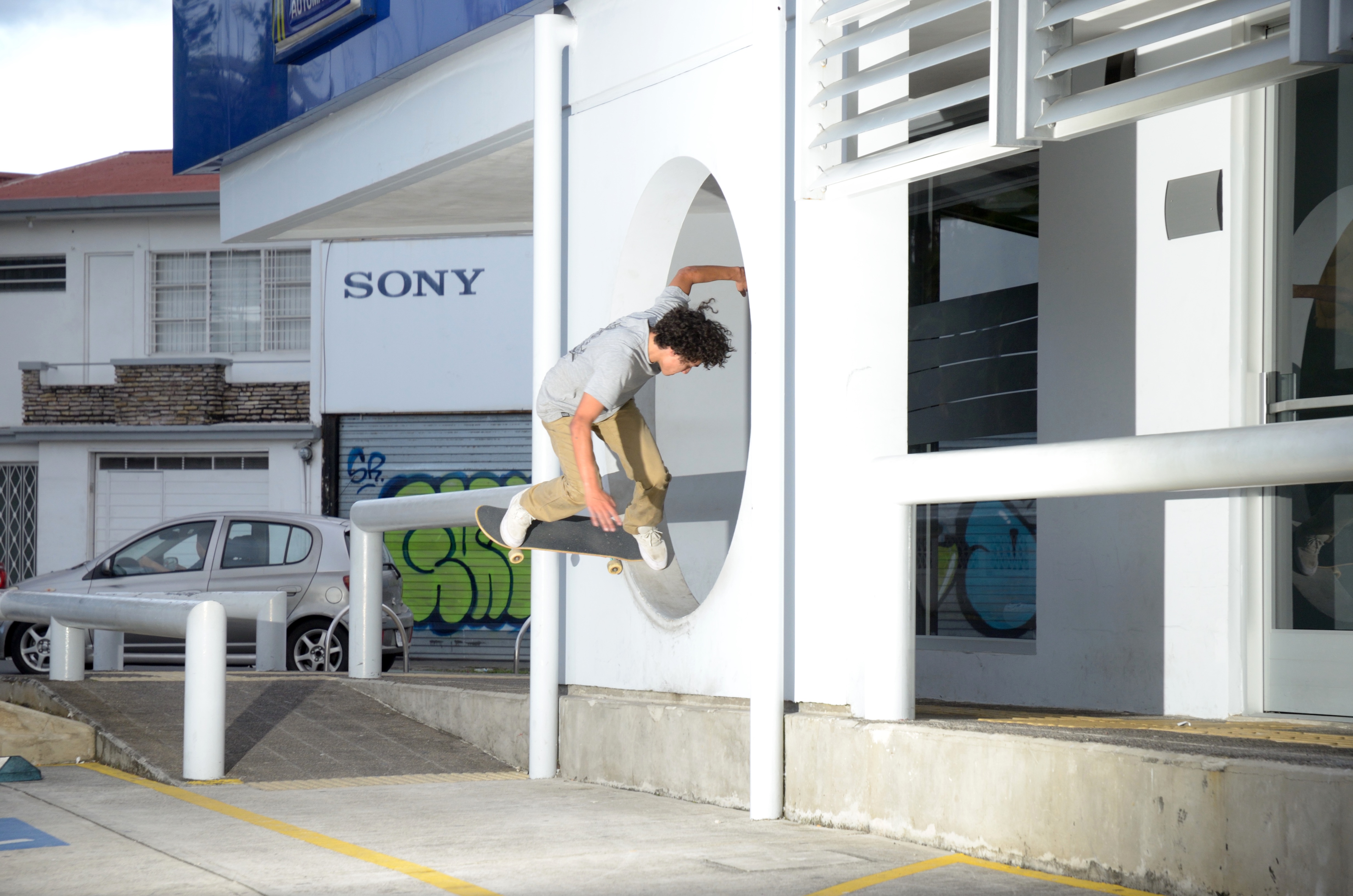
What other essentials do you keep in the camera bag?
I always carry one of those multipurpose blades, a small battery to charge the phone, a couple of extra shoelaces to tie flashes wherever you need them, an automatic blade, and folding pliers.
When you do shoot analog does this include skate photos?
I always try to take some film photos during every session. The biggest challenge is that you do not see what you are taking. You are using a full frame camera, nothing you see in the camera’s viewfinder will be cropped. What you see is what you get. I actually feel more confident when I take photos on film than when I do digitally because of that. The only thing I really like about digital is that it is faster for our modern lives in this digital age. But in terms of realism and quality, film has no comparison so far.
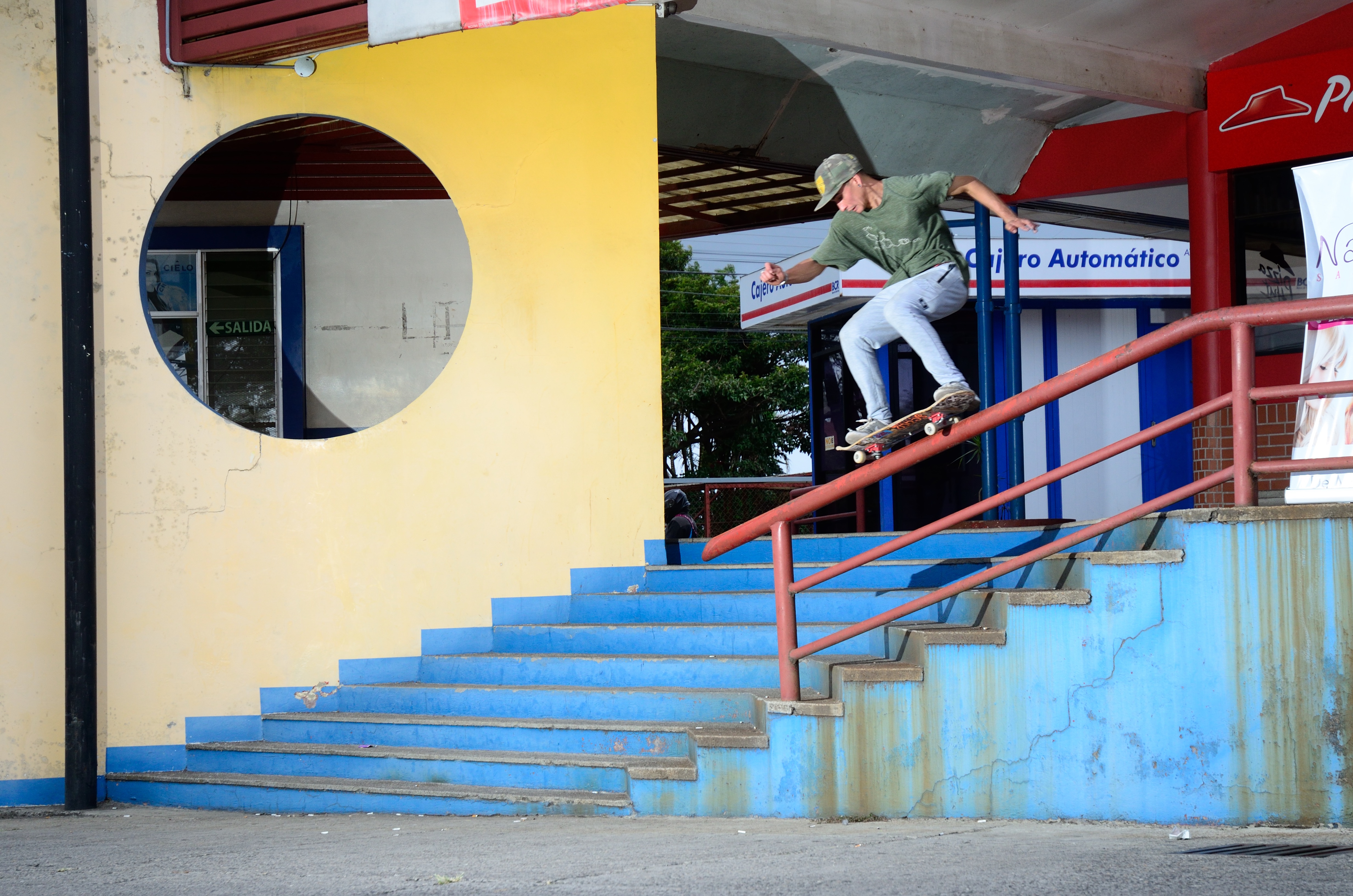
Have you ever developed your own film?
In the beginning when I was an advertising student I learned to develop in a very basic way. Then some neighbors started a developing business even though no one was doing it anymore. So I decided I could leave that job to them since they had a lot of experience and I thought it was a good idea to support your local store. Now after all these years I am still developing with them and they have never failed me.
What’s the scene like in Costa Rica?
It’s quite a large scene that has developed since the mid-late ‘70s when surfers from California came for a famous wave that formed in Mata de Limón on the Pacific Coast. According to them, they were the ones who brought the first skateboards to Costa Rica. From that time on the fever for skateboarding continued to grow and develop until today.
With such a large scene there, have you ever shot surfing?
The idea has come up many times. With such a large movement, the big sponsors, and all the help given to national surfing, sometimes I think I’m in the wrong sport. But like skateboarding, you must be a surfer to be a real surf photographer. I tried to surf a few times but I could never do it due to financial limitations. To be a surfer you need to live by the beach and I’ve always been a city dweller. I have taken photos a couple of times of some friends who surf, but it really only has been two or three photos ever.

Do you feel like Costa Rica gets slept on by the international skate community? Why would you recommend it to skaters looking to travel?
The truth is that we are ignored by the world. I think it is because we are a third world country. There is a lot of talent in the streets, but there they remain due to lack of real support. The problem here has always been the same, groups of wealthy people who see a niche market in skateboarding but have never actually ridden a skateboard in their lives. I’d recommend that you visit the country, all those who have come haven’t wanted to leave. They always want more from Costa Rica.
What’s the craziest situation you’ve had shooting?
In 2005 my brother and I had just made a video we managed to get sponsors for. It premiered in a theater and the profits we made from that were to be used to buy a digital camera that we needed. We went to buy it in Panama because at that time there were no stores that sold photography products except for one with exorbitant prices. After documenting some skateboarding with the local scene and some other Costa Ricans who went on the trip we returned home with the new camera. Three weeks later while we were having a session like any other at a spot near the capital, two men on a motorcycle approached us and pulled a gun, stripping us of the new camera and the only video camera we had. In a violent way they had taken everything that had cost us so much to achieve. Luckily no one was injured, the guy was violent and seemed to be waiting the minimum to shoot. After this we received help from family members to once again get the money to travel back to Panama to buy another camera. In street skateboarding you can’t trust yourself or turn your back on anyone. Since then I always carry a knife with me and keep one eye looking over my shoulder.
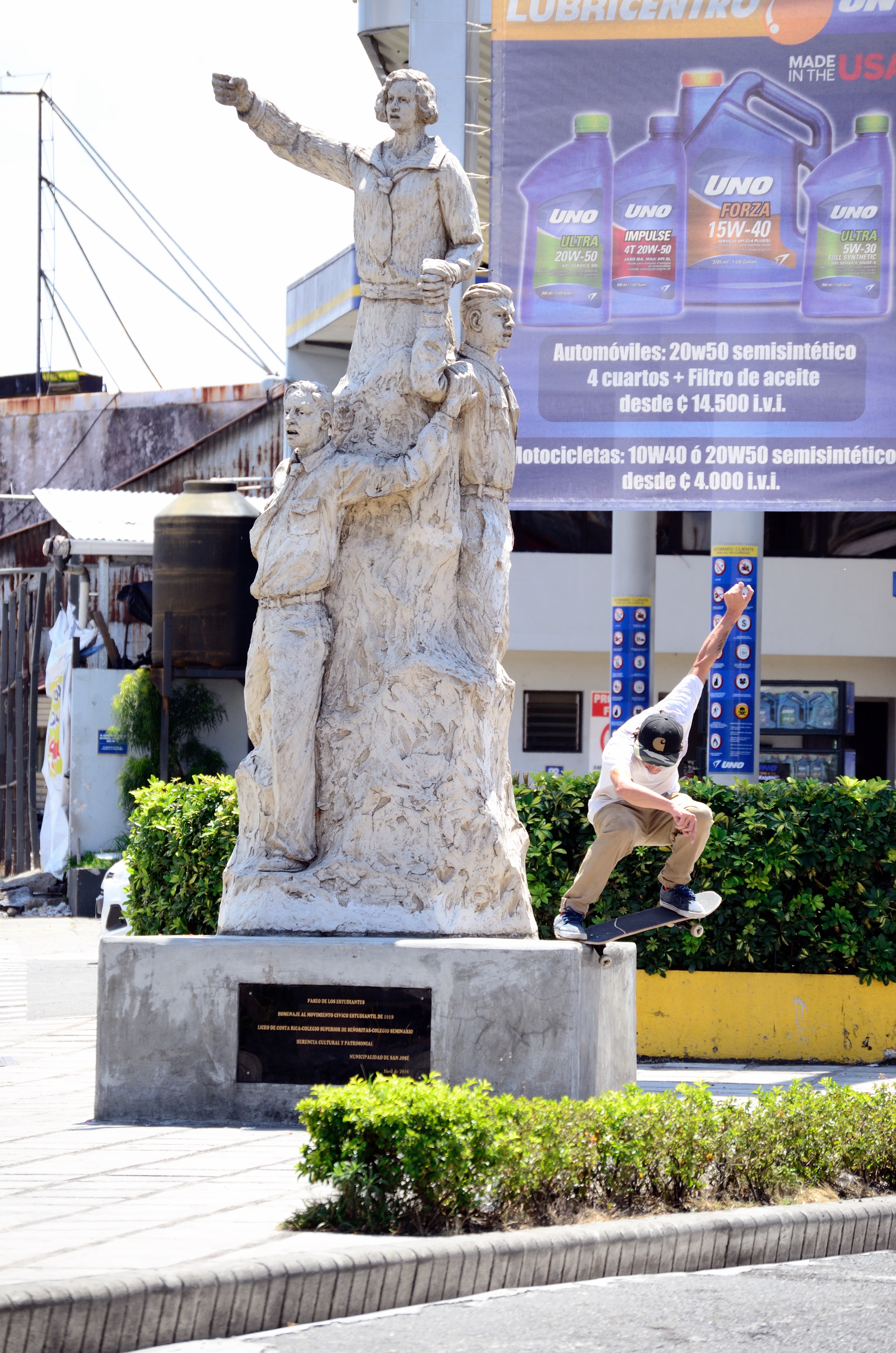
Do you have any advice to people looking to get into skate photography?
If you want to take pictures of skateboarding, you must be a skater. That same patience and stubbornness that skateboarding gives you to keep trying comes out, because photography is the same. You must take many photos, practice a lot, and never get discouraged. You also need to be patient with the skater you are going to photograph, as the trick can come out first try or take hours. Go out in the streets, search for and find your own style. Just like every skater has their own, you should look for yours.

